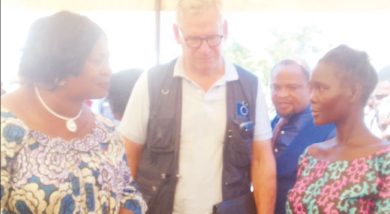IMF mission to visit Malawi March
 Finance and Development Planning Minister Dr Ken Lipenga on Wednesday told Parliament that an International Monetary Fund (IMF) mission will arrive in Malawi in March.
Finance and Development Planning Minister Dr Ken Lipenga on Wednesday told Parliament that an International Monetary Fund (IMF) mission will arrive in Malawi in March.
ÂÂ
Winding up debate on his Mid-Year Budget Review Statement, Lipenga said while the IMF team’s main focus would be on Article IV, Malawi hopes they would combine the mission with the derailed Extended Credit Facility (ECF).
Under Article IV of the IMF Articles of Agreement, the IMF holds bilateral discussions with members, usually every year.
An IMF staff team visits a member country, collects economic and financial information and discusses with officials that country’s economic developments and policies.
Turning to the debate on his statement, Lipenga called for an end to the blame game and urged Malawians to work together and find solutions to challenges facing the country.
He said government has taken all suggestions from various sectors with humility.
But Lipenga dismissed suggestions that figures presented in the Mid-Year Budget Review Statement were doctored, saying that is an insult to professionals in the public service who prepare such facts.
The minister repeated his stand against devaluation, reasons for low tobacco prices and the need for increased national export base. However, he acknowledged that the low fuel volumes had grossly affected the performance of road levies as there were losses.
He said the strong performance of the grants in the first half of the budget, where an estimated K26.6 billion (about $159.3 million) was exceeded to K26.7 billion (about $159.9 million), was mainly due to the fact that Britain, Norway and Ireland had rerouted the budget support towards the Farm Input Subsidy Programme (Fisp) and health sectors.
Lipenga also spent time to explain delays in road projects such as the Zomba-Jali-Phalombe-Chitakale Road, Lumbadzi-Dowa Road and Masauko Chipembere Highway, saying it was not due to lack of funds, but mainly due to contractual or procedural delays.
He also said increased allocations to State Residences and the Office of the President and Cabinet (OPC) were mainly due to salary increments, moving of the Department of Information Management Services to OPC from the Ministry of Information and Civic Education and resources for Commission of Inquiries necessitated by July 20 demonstrations and the Presidential Contact and Dialogue Committee.





